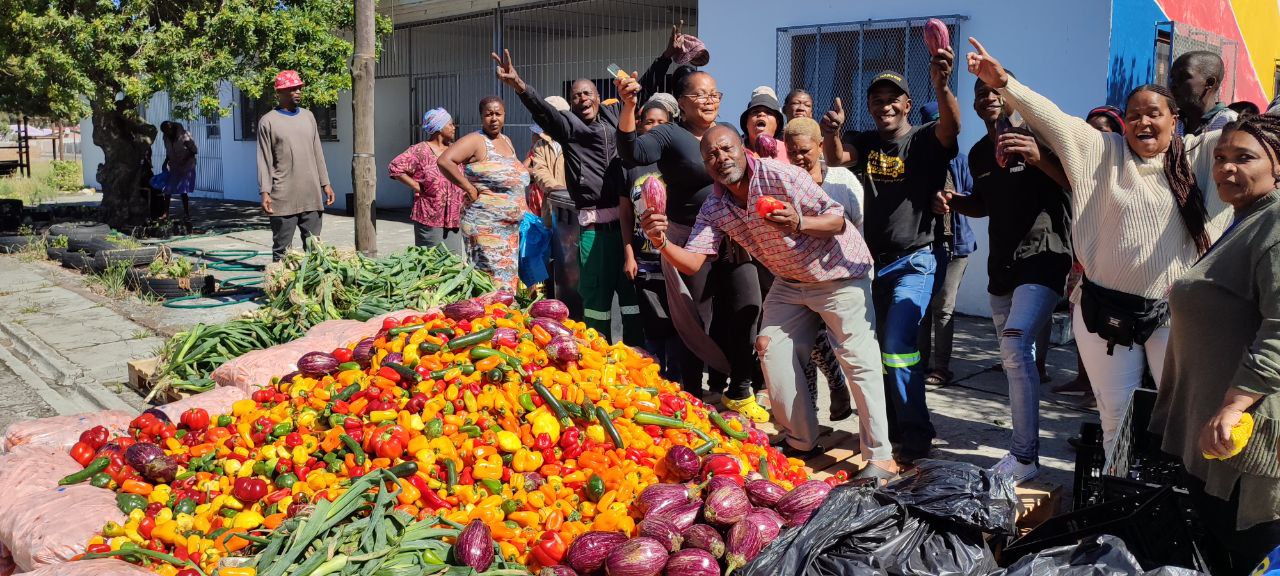 A Cape Town beneficiary organisation receiving fresh vegetable donation from SA Harvest
A Cape Town beneficiary organisation receiving fresh vegetable donation from SA Harvest
As we celebrate Mandela Month, it’s a time to reflect on the profound values that Nelson Mandela stood for, including unity, compassion, and, most in line with SA Harvest’s mission – which is to end hunger in South Africa – the fight against poverty and hunger. In this article I focus on the ‘double burden’ of malnutrition, which is prevalent in South Africa as it is in all poorer, developing economies.
Understanding the Double Burden
The WHO explains that the malnutrition ‘double burden’ is the co-existence of the seeming opposites of undernutrition on the one hand and obesity on the other. Chronic or recurrent undernutrition is the cause of, inter alia, stunting (low height-for-age), wasting (low weight-for-height) and also the cause of what could be termed the “opposite” condition of obesity. Not only do both of these conditions co-exist in highly malnourished societies, there is also a causal relationship between the two. Undernutrition early in life -even in utero- can cause, later in life, obesity and related noncommunicable diseases like diabetes, strokes and heart disease.
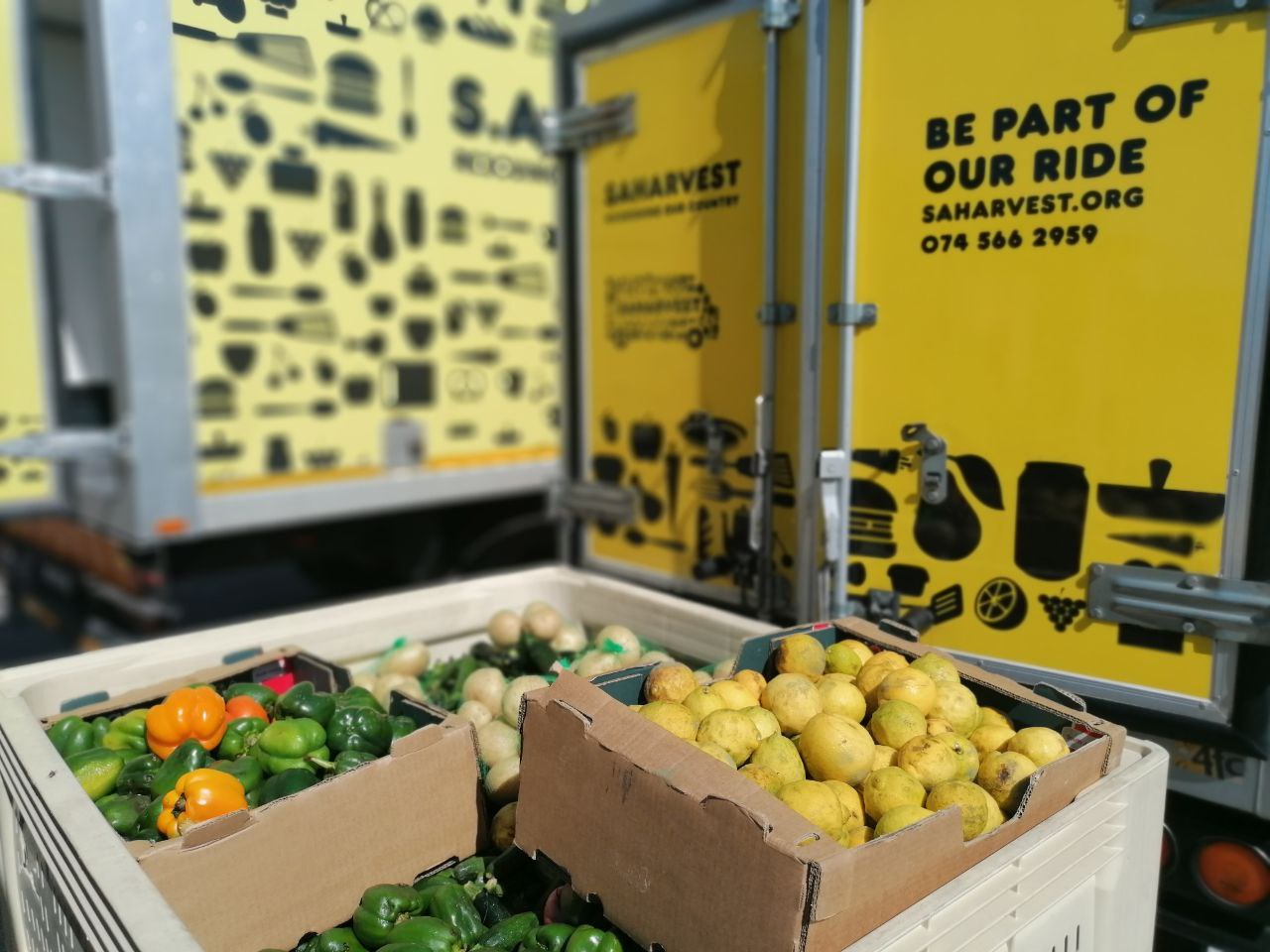 SA Harvest truck collecting fresh produce that would otherwise have gone to waste
SA Harvest truck collecting fresh produce that would otherwise have gone to waste
The South African situation
Shockingly, in South Africa, 27% of our children up to the age of five suffer from undernutrition. As a result, the cognitive damage prevents a significant percentage of these children from ever reaching their full potential to the extent that they will never be fully productive contributors to the economy. In a country where there is enough nutritious food for all, this is unforgivable! We must remember that sections 27 and 28 of our Bill of Rights express the right of all South Africans to have enough food and all our children to have enough nutrition. With 27% of our young children suffering from the serious effects of undernutrition, and around 20 million South Africans on a spectrum of severe food vulnerability, one wonders how seriously our leaders have taken what is the most crucial of basic human rights.
It is widely accepted that one of the basic causes of hunger and malnutrition in our country is the unaffordability of nutritious food. While the solutions to this situation are a matter for another time, it must be understood that the high cost of food is, apart from the early childhood conditions spoken of above, a significant cause of obesity and its consequent noncommunicable diseases. This is because nutritious food is by and large too expensive, forcing the poor to buy cheaper food, which is high in starch and sugar resulting in a severe lack in minerals, vitamins and micronutrients, which enable the body to produce enzymes, hormones and other substances, including iodine, vitamin A and iron, which are particularly essential to healthy growth and development.
The importance of nutritional interventions
Nutritional interventions are critical in addressing both undernutrition and obesity. These interventions can take many forms, from providing immediate nutritional food relief to implementing long-term educational programs promoting self-reliance in making the right food choices . Successful nutritional programmes globally and locally, in spite of the structural challenges like the cost of nutritious food. have shown that, with the right approach, significant strides in improving public health are possible. By raising awareness about the importance of balanced diets and teaching communities how to make healthier food choices, we can empower individuals to take control of their own health.
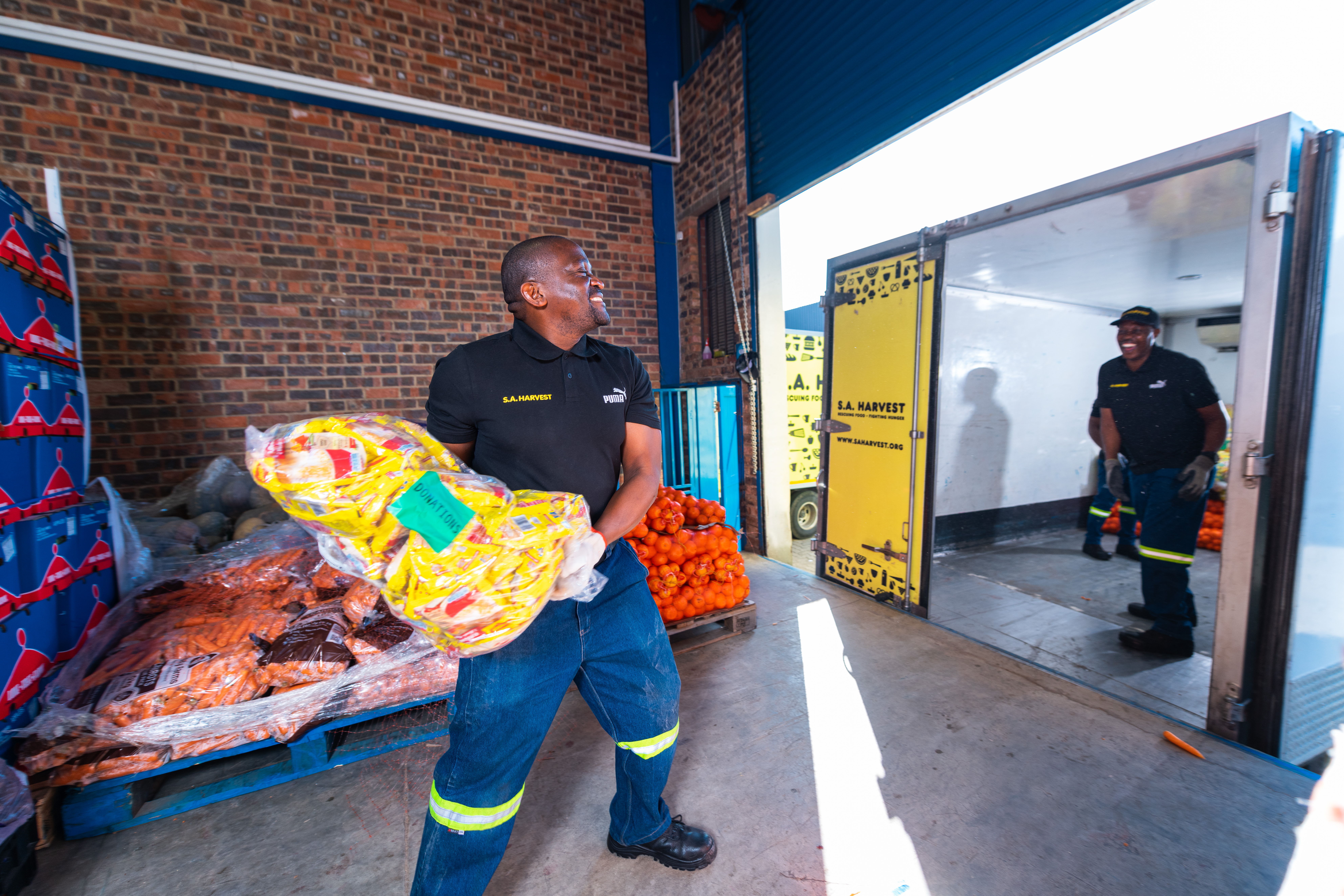 SA Harvest team receiving donations. Photo credit Mpumelelo Mcau
SA Harvest team receiving donations. Photo credit Mpumelelo Mcau
SA Harvest’s role and initiatives
At SA Harvest, our mission is to end hunger by rescuing good food that would otherwise go to waste and delivering it to those in need. Our latest initiative, the #BucketsofNutrition Challenge, is a prime example of how we are contributing to the fight against the double burden of malnutrition .
Each bucket we pack contains a balanced mix of non-perishable food items designed to provide essential nutrients. These buckets are not just about providing immediate relief; they are about offering sustenance that supports long-term health and well-being.
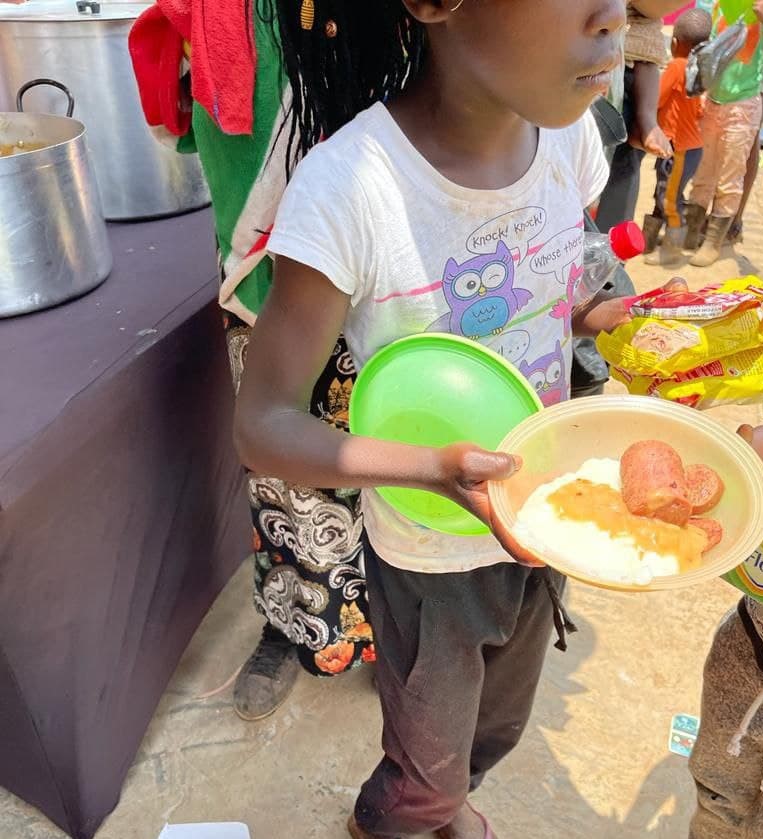 Imagine Church is an SA Harvest beneficiary providing daily meals to children in Jackson Park
Imagine Church is an SA Harvest beneficiary providing daily meals to children in Jackson Park
How corporates and communities can make a difference
Addressing the double burden of malnutrition in South Africa is not just a health issue; it is a moral imperative. As we honour Mandela’s legacy this month, we are presented with the opportunity to take concrete steps to fight hunger and promote nutrition in our communities.
Corporate social responsibility plays a pivotal role in addressing nutritional issues. Businesses can support initiatives like the #BucketsofNutrition Challenge through financial contributions, employee volunteer programmes, and by leveraging their platforms to raise awareness. Community groups and individuals can also make a significant impact by participating in food packing events, donating time, or contributing funds to purchase ingredients.
I invite you to join us in the #BucketsofNutrition Challenge. Together, we can make a tangible difference in the lives of many South Africans. Register today, get involved, and help us spread the word.
For more information and to participate in the #BucketsofNutrition Challenge, visit www.saharvest.org.
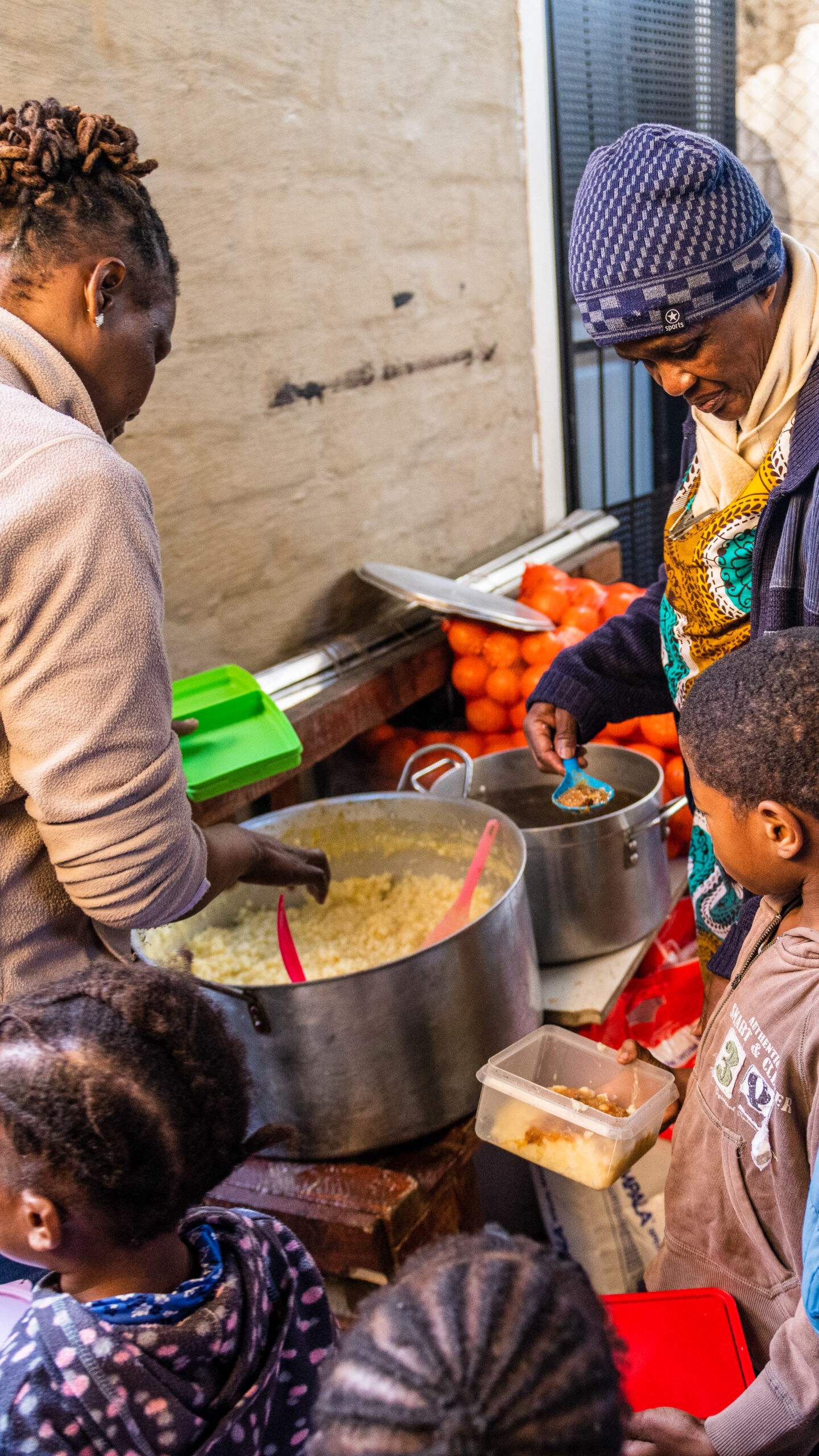 SA Harvest has over 200 beneficiary organisations around the country. Photo credit Mpumelelo Mcau
SA Harvest has over 200 beneficiary organisations around the country. Photo credit Mpumelelo Mcau